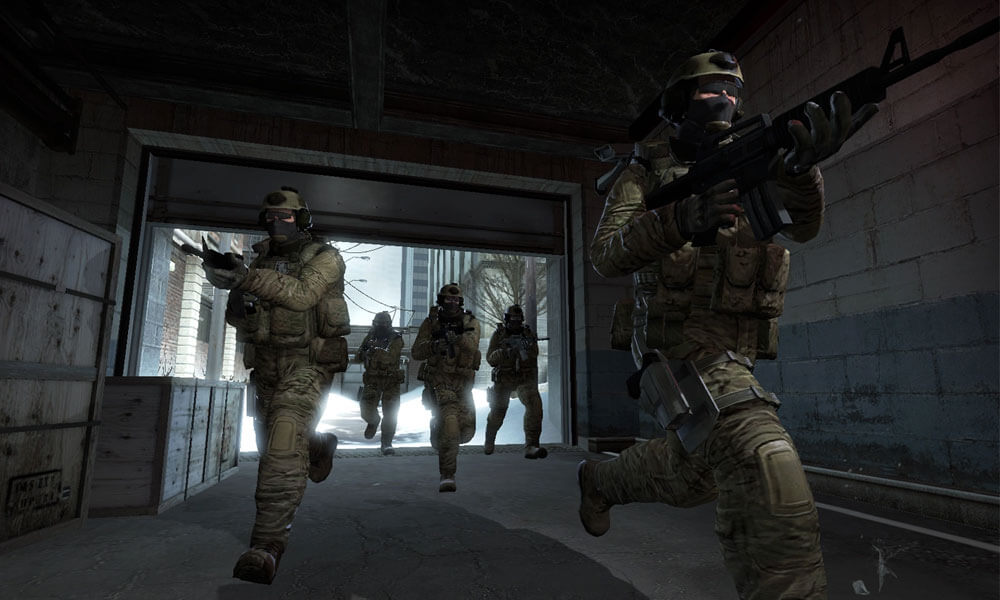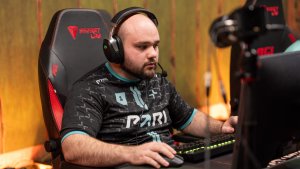In 2021, the Counter-Strike: Global Offensive community was rocked by a string of Counter-Strike scandals. As a result, the CS:GO competitive and esports betting scenes were left facing major issues of integrity. It all started with the actions of several Counter-Strike players in the Australian Mountain Dew League, who were banned for betting on their own games and fixing matches. But from there, it just spiraled.
This is your quick need-to-know guide on the most notorious Counter-Strike scandals.
The Counter-Strike Betting Scandal
The Spectator Bug
As the first major event in the CS:GO betting scandal, the “Spectator Bug” exploit serves as a perfect introduction to any discussion on Counter-Strike scandals. In September 2020, the ESIC (Esports Integrity Commission) began investigating allegations levied against a string of players and coaches. It was revealed that these individuals were using a “spectator bug” to openly view Counter-Strike competitive matches, using what they viewed to gain an edge against opponents.
This was a direct form of cheating, using an exploit to gain a competitive advantage. Initially, a slew of 25,000 demos of CS:GO games played over a four-year period was reviewed extensively. There was so much data to trawl through that the ESIC resorted to an AI inspector alongside human operators. In total, more than 15 terabytes of data were reviewed, following which, 37 CS coaches were sanctioned.
Remarkably, this included coaches from some of the best CS:GO teams in the scene, such as FAZE, MIBR, HellRaisers, Heroic, NAVI, and Team Dignitas. For the most severe cases of exploitation, coaches were banned for a massive three years.
However, quite bizarrely, on the 2nd of December 2020, it was suddenly revealed that no prosecutions would be handed down. While this issue was severe, things were about to get a whole lot worse. By October 2021, the results of the lengthy investigation were published by the ESIC. In this report, the ESIC discussed the outcome of this case, revealing the depth of research carried out.

Image credit: Valve
Corruption in the Mountain Dew League
For the duration of a two-year period, the ESIC had been receiving numerous alerts and reports through their “global integrity monitoring framework.” It’s worth highlighting that as real money, careers, and individuals are involved, these allegations, claims, and prosecutions are severe and must not be taken lightly.
The ESIC responded to these alerts by launching a coordinated investigation into allegations of match-fixing, which included players betting on their own matches. Unfortunately, some of the best Counter-Strike betting sites were used for these nefarious acts.
Ultimately, seven players were identified throughout the investigation:
- Akram “akram” Smida
- Corey “netik” Browne
- Damian “JD/The Real Goat” Simonovic
- Carlos “Rackem” Jefferys
- Joshua “jhd” Hough-Devine
- Stephen “sjanastasi” Anastasi
- Daryl “Mayker” May
As a direct result of their part in the CS:GO match-fixing scandal, all of the aforementioned players were handed 12-month bans.
The Revelations Begin Rising
One of the players implicated in the Counter-Strike betting scandal, Joshua Hough-Devine, came forward to blow the whistle on the entire scene. He was handed a 12-month ban for his actions, and shortly after, spoke out to ABC News, spilling the beans on the widespread nature of match-fixing in CS:GO. He claimed that he’d only ever bet on himself to win and never threw a single match, in an attempt to regain some lost integrity.
While Hough-Devine took full responsibility for his actions – and rightly so – he claimed that he ‘didn’t know the rules’. However, he also opened up on the fact that younger players were leaning towards these malicious actions, stating that “less experienced esports competitors made easier targets for those looking to fix esports matches.”
Unfortunately, the younger participants remain much more impressionable, and if a malicious organization gets them young, they’ll be behind them when they inevitably climb the ladder.
The FBI Investigates the Counter-Strike Betting Scandal
In April of 2021, we reported on the FBI’s sudden involvement in the Counter-Strikebetting scandal. It had now become a much more severe case, and it seemed to need intervention from a federal agency. Ultimately, the FBI revealed that it would be using RICO (Racketeer Influenced and Corrupt Organizations Act) to subdue the ongoing cases of match-fixing in Counter-Strike esports. This was because, in many cases, criminal organizations would coerce players into pursuing these illegal acts in-game.
By November 2021, the investigations were still pending. It was subsequently revealed that CS:GOwasn’t the only platform targeted in these scandals, as midway through 2021, it was revealed that Valorant was suffering from similar circumstances. Riot Games, the developer of Valorant, responded strongly to these allegations, demanding an intensive investigation into the claims.
We’re yet to see how all of this will unfold, but thanks to organizations like the ESIC, we can rest assured that acts like the CS:GO match-fixing scandal will always be uncovered.
Other Counter-Strike Scandals You Might Have Heard About
- Word.exe Counter-Strike Cheating Scandal – Only 4 months after he was signed by OpTic India, Nikhil “forsaken” Kumawat was caught using aim hacks during the eXTREMESLAND 2018 Asia Finals, which would become one of the most controversial Counter-Strike tournaments in history. After the incident, OpTiC released all its members and stopped its expansion in India. As for the title of the scandal, the file containing forsaken’s hacks was named “word.exe,” which became a viral meme on the internet shortly after the news came out.
- Counter-Strike Lotto Scandal – A.k.a. the TmarTn CSGO Scandal, the Syndicate CSGO Scandal, or the CSGO Lottery Scandal. It refers to a controversy involving the skin-gambling site CSGO Lotto, which enabled consumers to gamble using skins as virtual currency. The co-owners of CSGO Lotto, Trevor “TmarTn” Martin and Thomas “Syndicate” Cassell, were added to a class-action lawsuit filed against Valve. The suit alleged that Valve knowingly allowed an illegal online gambling market to flourish around the purchase, trade, and wagering of Counter-Strike skins. Martin and Cassell were also accused of promoting their site on YouTube without disclosing their ownership of the company.
- Shanks Counter-Strike Scandal – Refers to the allegations that Ryan “shanks” Ngo, a former Counter-Strike player and current Valorant player, was involved in fixing matches in the Mountain Dew League (MDL), a semi-professional Counter-Strike league. This Counter-Strike match-fixing scandal is part of a larger investigation by the ESIC and the FBI into match-fixing in Counter-Strike, which has implicated several players and teams from North America and Australia. This scandal is discussed in more detail above.
- Coach Counter-Strike Scandals – The Counter-Strike coach scandal is a series of incidents involving professional Counter-Strike coaches who exploited a bug in the game to gain an unfair advantage over their opponents. The bug allowed the coaches to spectate the entire map from a fixed position, giving them access to information that was not available to the players. Several coaches were caught and banned by the ESIC for using the bug in official tournaments. This scandal is discussed in more detail above.
- ShaZam Counter-Strike Scandals – Refers to the involvement of Shahzeb “ShahZaM” Khan, a former professional Counter-Strike player, in a CS:GO match-fixing scandal that took place in 2014. According to screenshots of a conversation with ShahZaM before the match, he claimed that the match between iBUYPOWER and NetCodeGuides had been fixed.
- Counter-Strike Adderall Scandal – The Counter-Strike Adderall scandal refers to the admission by Kory “Semphis” Friesen, a professional CS:GO player, that he and his team, Cloud9, had used Adderall, a prescription drug that enhances focus and reaction time, during a tournament in 2015. The scandal sparked a debate about the use of performance-enhancing drugs in esports and prompted the ESL, one of the largest esports leagues, to introduce drug testing for its events.
- Counter-Strike Skin Scandal – CS.MONEY, a popular online marketplace for CS skins, has announced that it was hacked and lost over $6 million in digital assets. The company said that an unauthorized third party accessed its database and transferred thousands of skins to unknown accounts. CS.MONEY apologized to its customers and promised to investigate the incident and reimburse the affected users.
- TSM Counter-Strike Scandals – A minor controversy that erupted in 2015 when Team SoloMid (TSM), decided to part ways with its Counter-Strike roster after a series of disputes and disagreements. The roster included dupreeh, Xyp9x, device, cajunb, and karrigan, which were (and still are) some of the best CS:GO players in the world.
- Heroic Counter-Strike Scandals – Refers to an incident where Nicolai “HUNDEN” Petersen, a former coach of Heroic, was caught exploiting a coach spectating bug that allowed coaches to place their in-game camera anywhere on the map to gain an unfair advantage. HUNDEN was banned alongside 36 other Counter-Strike coaches in 2020 for using the bug.
- FNX Counter-Strike Scandals – Imperial Gaming player Lincoln “fnx” Lau was accused by Twitch streamer Schözen of sharing her intimate videos online without her consent. Schözen alleged that fnx had assisted her when her boyfriend abandoned her in 2019, and by 2020, their relationship had become serious. During that time, fnx had recorded a video with her consent. However, Schözen claimed that fnx shared the video to an online WhatsApp group without her permission.























